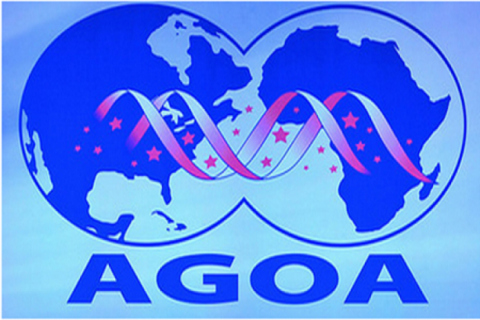
In 2021, five of the 39 beneficiaries accounted for 82% of non-oil exports to the US under the AGOA. That year, textiles and apparel made up the largest share of the beneficiaries’ exports under that scheme.
The preferential trade program AGOA has had positive impacts on only a handful of the beneficiary countries, according to a report released by the U.S. International Trade Commission (USITC), this April 2023.
The report commissioned by the Ways and Means Committee of the lower house of the U.S. Congress, reveals that only five of the beneficiaries -all of them are Sub-Saharan African countries- accounted for 82% of non-oil exports to the United States under the AGAO and SGP schemes in 2021. They are South Africa, Kenya, Lesotho, Madagascar, and Ethiopia.
That year, the U.S. imported $27.3 billion worth of goods from beneficiary countries. Those imports were largely dominated by crude oil.
The value of U.S. imports of non-oil products from AGOA-eligible countries under this specific trade preference scheme and the Generalized System of Preferences (GSP, another scheme that allows U.S. imports of goods from developing countries at reduced or zero rates) has declined from about $8.2 billion in 2001 to $6.8 billion in 2021.
The average utilization rate of AGOA, i.e., the rate at which African exporters use the trade preference program, has reached 85 percent for all African beneficiary countries. However, this rate varies from one country to the other.
For non-oil exports, utilization rates were below 40% for 15 countries, including Nigeria, Angola, Gabon, Niger, and Mali.
Textiles and apparel: The most exported goods
The USITC points out that the textile and apparel sector is the largest beneficiary of the AGOA scheme.
Tariff reductions of up to 30 percent and the provision for third-country fabrics have allowed several countries to expand their production capacity.
U.S. textile and apparel imports from beneficiary countries have increased from $953 million in 2001 to $1.76 billion in 2022. More than 95 percent of these imports, however, come from just five countries: Kenya (31.5 percent), Madagascar (19.9 percent), Lesotho (20.6 percent), Ethiopia (18.3 percent), and Mauritius (5.1 percent).
The report also indicates that the AGOA scheme has had very limited positive impacts on economic development, regional integration, job creation, poverty reduction, and improvement of the living conditions of marginalized or underserved social groups.
Only the textile and apparel sector created between 240,000 to 290,000 jobs in eight of the AGOA beneficiary countries and helped improve the living conditions of some underserved groups, including women (between 70 and 90 percent of the workforce in the sector).
The report also reveals that South Africa accounts for almost all U.S. chemical imports from AGOA countries ($384 million in 2021).
Washington imports negligible amounts of cotton from AGOA countries and Sub-Saharan Africa as a whole. It imported $1.2 billion of cocoa products from Sub-Saharan Africa in 2021. However, only 8% of those imports were under the AGOA scheme, which covers only two processed cocoa products.
Launched in May 2000, the AGOA program allows eligible sub-Saharan African countries to export more than 1,700 products to the United States without paying tariffs. Apart from those products, there are 5,000 goods that qualify for duty-free access to the U.S. market under the Generalized System of Preferences.
Each year, Washington updates the list of AGOA-eligible countries based on their commitment to the market economy, respect for the rule of law, and anti-poverty policies. The system also takes into consideration the democratic progress or setbacks of the countries concerned.
